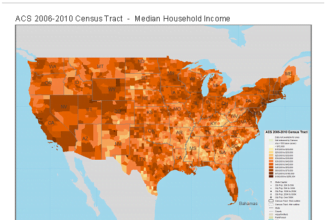 For the first time in 23 years, Pepsi will not be advertising in The Super Bowl – the championships of brand advertising. Big advertisers pay big bucks to reach a big audience with their messages during the Super Bowl. 30-second spots are running nearly $3 million this year. But importantly, this isn’t a cost-cutting strategy for Pepsi. In fact, they are increasing their marketing budget in 2010. Pepsi is simply shifting their Super Bowl spend to the “Pepsi Refresh Project” – with a heavy emphasis on digital media.
For the first time in 23 years, Pepsi will not be advertising in The Super Bowl – the championships of brand advertising. Big advertisers pay big bucks to reach a big audience with their messages during the Super Bowl. 30-second spots are running nearly $3 million this year. But importantly, this isn’t a cost-cutting strategy for Pepsi. In fact, they are increasing their marketing budget in 2010. Pepsi is simply shifting their Super Bowl spend to the “Pepsi Refresh Project” – with a heavy emphasis on digital media.
The advertising industry’s budget shift to digital media has been underway for several years. Direct response advertising has led the charge due to the compelling combination of relevance and intent offered by search…
 For the first time in 23 years, Pepsi will not be advertising in The Super Bowl – the championships of brand advertising. Big advertisers pay big bucks to reach a big audience with their messages during the Super Bowl. 30-second spots are running nearly $3 million this year. But importantly, this isn’t a cost-cutting strategy for Pepsi. In fact, they are increasing their marketing budget in 2010. Pepsi is simply shifting their Super Bowl spend to the “Pepsi Refresh Project” – with a heavy emphasis on digital media.
For the first time in 23 years, Pepsi will not be advertising in The Super Bowl – the championships of brand advertising. Big advertisers pay big bucks to reach a big audience with their messages during the Super Bowl. 30-second spots are running nearly $3 million this year. But importantly, this isn’t a cost-cutting strategy for Pepsi. In fact, they are increasing their marketing budget in 2010. Pepsi is simply shifting their Super Bowl spend to the “Pepsi Refresh Project” – with a heavy emphasis on digital media.
The advertising industry’s budget shift to digital media has been underway for several years. Direct response advertising has led the charge due to the compelling combination of relevance and intent offered by search. Brand advertising’s shift to digital has lagged for a variety of reasons:
- Digital media fragmentation: Unlike the Super Bowl, where advertisers can reach over 90 million viewers in a brand-safe environment with a single buy, it has been hard to reach such a large audience through digital channels efficiently. Now, however, the large-scale Google and Yahoo ad exchanges promise to change this dynamic, and a growing number of demand-side platforms like AppNexus, B3, Invite Media, and MediaMath are aggregating their inventory, offering increased ad placement transparency, and simplifying the buying process.
- Lack of measurability: For years, when it came to digital advertising attribution methodology, the “last click” has been king. This approach is not particularly helpful for branding campaigns – where success is measured in terms of awareness. But an increasing number of attribution analysis solutions, like ZAP from WPP’s Media Innovation Group, now go well beyond that “last click” methodology to help address this.
- Unsuitable display ad formats: Brand advertisers have been limited online by awkward display ad sizes and shapes that make it difficult to achieve their branding goals. But that is changing, and online video advertising of the sort offered by Tremor Media now gives brand advertisers the promise of more engaged audiences and better opportunities to tell their brand’s “story”.
- Lack of creativity: Last spring, Mary Meeker listed the top 25 ad campaigns ever (according to Advertising Age) and pointed out that none of them leveraged digital media! She went on to ask, “Where is the great creative?” Pepsi’s Super Bowl decision may offer an answer. Pepsi is breaking with tradition to launch a creative branding campaign that leverages digital media – both to engage consumers in a two-way dialog, and also to more effectively measure the effectiveness of Pepsi’s marketing investment.
So perhaps Pepsi’s Super Bowl decision signals that 2010 will be “The Year of Online Brand Advertising”. Of course, smart people have been predicting that every year since 2005. 🙂 Regardless of the exact timing, it is clear that this budget shift is underway and will continue for as long as advertising spend and consumer attention remain out of whack (as depicted by Mary Meeker here):
I should mention that it was a thoughtful response by Jonathan Mendez in the comment thread of his recent post on the “Shift to Search” that prompted me to think about this topic. In addition, I recommend reading Darren Herman’s recent post on “The End of the Branding Campaign” – it is also quite good.
Photo credit: Sienar








